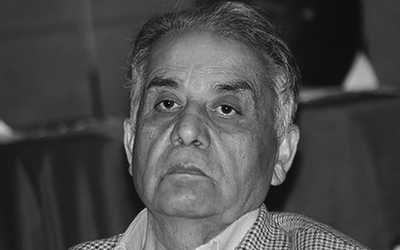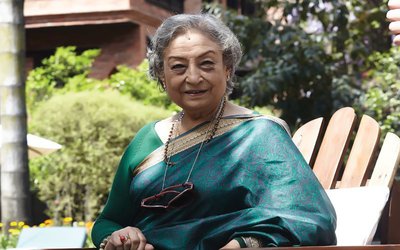
The British author VS Naipaul has died at his home in London aged 85, his family said in a statement.
Lady Naipaul confirmed that her husband had died peacefully. “He was a giant in all that he achieved and he died surrounded by those he loved having lived a life which was full of wonderful creativity and endeavor,” she said.
Vidiadhar Surajprasad Naipaul, a Nobel laureate born in Trinidad, published more than 30 books over five decades, ranging from comic novels set in Trinidad and Tobago to memoir and travel writing.
His 1961 novel, A House for Biswas, is seen by many critics as his most important works. The book was based on the life of his father Seepersad, who was a reporter for the Trinidad Guardian.
Vidiadhar Surajprasad was born in Chaguanas, Trinidad. When he was six his family moved to the country’s capital, Port of Spain.
It would later become the setting for his first novel, written in 1959 and titled Miguel Street.
In 1948 he won a government scholarship to read English at Oxford’s University College, where he suffered a nervous breakdown.
He married Patricia Hale, whom he met at Oxford in 1955. She died in 1996 and he went on to marry Lady Nadira, who was some 20 years his junior, shortly afterwards.

Sir Vidia, who as a child was read Shakespeare and Dickens by his father, was raised a Hindu and attended Queen's Royal College in Trinidad.
He moved to Britain and enrolled at Oxford University in 1950 after winning a government scholarship giving him entry into any Commonwealth university of his choosing.
As a student, he struggled with depression and attempted suicide.
His first book, The Mystic Masseur, was published in 1951 and a decade later he published his most celebrated novel, A House for Mr Biswas, which took over three years to write.
Throughout his career he was outspoken, notably criticizing Tony Blair as well as the famous novel of EM Forster, A Passage to India. He also notoriously fell out with author Paul Theroux, whom he had mentored, but the pair later reunited and resolved their differences.

Among his other well-known works were those on Islamic fundamentalism - the 1981 work Among the Believers and the 1998 book Beyond Belief.
In awarding him the Nobel Prize for literature in 2001, the Swedish Academy said he was being honored “for having united perceptive narrative and incorruptible scrutiny in works that compel us to see the presence of suppressed histories”.
Source: Various Newspaper
- Myanmar Government says quake death toll tops 2,700, could rise further
- Apr 02, 2025
- Trump To Reveal Reciprocal Tariffs On Wednesday
- Apr 02, 2025
- UN migration agency calls for support for quake-hit Myanmar
- Apr 01, 2025
- KMC Imposes Rs 793,000 Fine On Former King Shah
- Mar 30, 2025
- US proposed new mineral rights deal: Zelenskyy
- Mar 30, 2025















